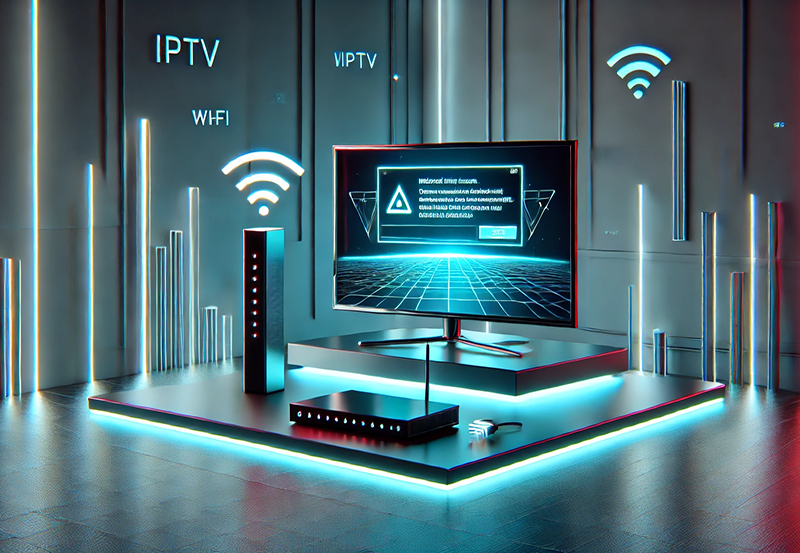In today’s digital age, seamless streaming is non-negotiable for both casual viewers and professional broadcasters. As the demand for IPTV with movies and series rises, so do expectations for uninterrupted viewing experiences. Unfortunately, buffering is a common issue that turns excitement into frustration. In this article, we explore how DNS settings can play a pivotal role in influencing IPTV buffering issues. The insights presented here will guide you to stream smarter and enjoy IPTV better.
The Basics of IPTV and Buffering
What Is IPTV?
IPTV, or Internet Protocol Television, is a method of delivering television content over IP networks. Unlike traditional cable or satellite methods, IPTV allows for streaming media as it’s sent in real-time. This technology has become a popular choice for accessing movies, series, and live broadcasts, offering the convenience of on-demand viewing.
Common Causes of Buffering
Buffering occurs when the streaming speed does not match the required bitrate of the media being delivered. Commonly, this can be attributed to network congestion, slow internet speed, or server issues. However, DNS plays a less obvious yet critical role that is often overlooked by users seeking premium IPTV experiences.
Pro Tip:
Stream live sports and entertainment seamlessly with Top IPTV subscriptions for unparalleled quality and performance.
Exploring the Role of DNS in Streaming
What Is DNS?
The Domain Name System (DNS) is akin to the internet’s phone book. It translates domain names, which are easy for humans to remember, into IP addresses that computers use to identify each other on the network. This translation process is crucial for accessing any site or stream online.
DNS and Its Impact on Streaming
Old or inefficient DNS servers can significantly slow down the loading of IPTV content. When you request to stream a movie or a series, the DNS server must first translate the domain into an IP address before you can begin watching. A slow DNS server can add delays, resulting in annoying buffering problems.
Optimizing DNS for Superior IPTV Performance
Choosing the Right DNS
To enjoy IPTV better, selecting an efficient DNS service is key. Some popular public DNS servers include Google DNS and Cloudflare DNS, noted for their speed and reliability. By switching to a faster DNS, you can reduce the initial connection time to streaming servers, thereby limiting buffering.
- Google DNS: 8.8.8.8 and 8.8.4.4
- Cloudflare DNS: 1.1.1.1 and 1.0.0.1
Configuring DNS on Your Device
Changing the DNS settings on your device is relatively straightforward. Here’s a quick guide:
- Access your device’s network settings.
- Select the network connection you are using.
- Locate the DNS settings option.
- Enter the preferred DNS IP addresses.
- Save changes and test your Internet connection.
Benefits of Optimizing DNS Settings for IPTV
Improved Load Times
By using an optimal DNS, you can improve the load times of your IPTV services. Faster DNS resolution means quicker access to streaming content, reducing initial buffering delays.
Enhanced Viewing Experience
Ultimately, a smoother connection leads to a better viewing experience. With minimized buffering, you can watch your favorite movies and series without interruptions, making the entire streaming process more enjoyable.
Common Misconceptions About DNS and Streaming
DNS as a Universal Solution
While optimizing your DNS can significantly improve your IPTV experience, it’s not a cure-all. Factors such as overall internet speed and server proximity still play significant roles in buffering issues. Think of it as a piece of the puzzle, not the entire picture.
Free vs. Premium DNS Services
Another common misconception is that paid DNS services are always better. While they may offer additional features like enhanced security, the basic speed and efficiency of DNS resolving can often be matched by free options like those mentioned earlier.
Practical Tips to Stream Smarter
Regularly Update Firmware
Ensure that all streaming devices have up-to-date firmware. Manufacturers often release updates to enhance compatibility and performance, which can indirectly affect streaming quality.
Check Your Internet Speed
Conduct regular internet speed tests to ensure you are getting the bandwidth you pay for. Slow internet services can lead to buffering, making DNS optimizations less impactful.
A New Chapter in IPTV Experience
As technology continues to advance, the way we consume media evolves with it. Understanding the technical nuances that impact your IPTV experience, like DNS settings, empowers you to take control and optimize to your liking. By implementing these changes, viewers can look forward to a more seamless, enjoyable media experience, free from the frustrations of buffering. Now’s the time to explore these adjustments and stream smarter.
FAQ

1. What is the primary function of DNS in IPTV?
DNS translates domain names into IP addresses, facilitating access to streaming servers. An optimized DNS can improve connection times and reduce buffering in IPTV.
2. Are there any risks in changing my DNS settings?
Changing DNS settings is generally safe and can be easily reversed. However, ensure you choose a credible DNS provider to maintain online privacy and security.
3. Can a DNS change affect other internet activities?
Yes, a DNS change can improve the performance of various internet activities, not just IPTV. It’s particularly beneficial for tasks that require quick server connections.
4. Is a paid DNS service necessary for better IPTV performance?
Paid DNS services offer additional features but are not necessarily faster than reputable free options like Google DNS or Cloudflare DNS, which suffice for most streaming needs.
5. How often should I update my DNS settings?
You don’t need to change DNS settings frequently. Periodically testing different DNS providers can help optimize your experience, but major changes are only needed if you encounter issues.
ProgTV Beginners: How to Adjust Playback Settings





